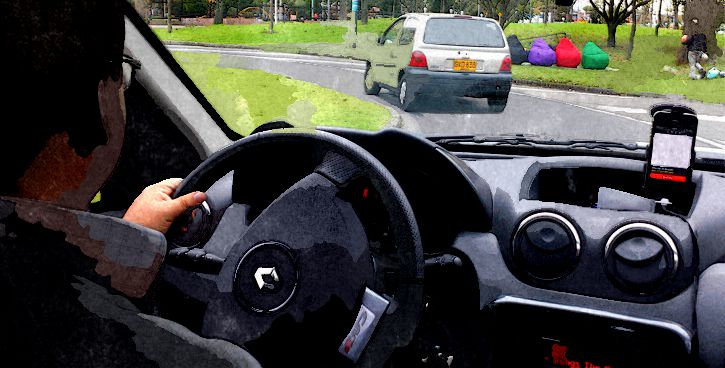
Advertisement
It sounds innocent enough, giving a parent the technology to keep track of their teenage children when they are out on the town, but the reality is, it’s just another way to condition us into accepting as “normal” someday the government’s 24/7/365 tracking of each of us.
As reported by The Verge, new technology from Verizon called “Hum”—an aftermarket connected car add-on—is set to become a teen driver’s worst nightmare, potentially. An update coming this month to the device will enable what is called “geofencing,” or technology that allows a parent to monitor their kids’ location, car speed and other features. The owner of the car—the parent—will be able to receive real time speed warnings or location changes on their smart phones.
That will mean kids can’t hot rod the family roadster or head to the mall to meet someone when they say they’re going to a friend’s house without mom and dad knowing about it.
Besides location and speed alert services, the upgrades coming in this month include location tracking as well as a driver log measuring travel times, engine idle times and average speeds.
Nice for the parent, huh?
Do we want our children to become accustomed to 24/7/365 ‘monitoring’?
Not really, reports Free Range Kids:
…[T]he idea that once we trust our kids to drive we do not trust them to go where they say they’re going, drive the way they tell us they’re driving, or stay where they agreed to stay means a basic bond of trust is gone. We are treating them like toddlers who need direct oversight, even though we make this happen electronically.

Kids will be kids, sure, and teenage driving kids will be teenage driving kids, sure, but the site makes a good point about trust. Further, the Hum device appears to make the assumption that parents must always be in control of their children’s ability to make informed decisions.
Like parents being able to set a car’s maximum speed. What happens if the teen driver finds himself or herself in an emergency situation they need to get out of in a hurry? What happens if the car is “set” at 35-50 mph but the child needed to drive faster in order to reach safety? How will a parent feel if they lose a child to a criminal who could drive faster?
Then there is the issue of the alerts when kids drive beyond parent-established boundaries—is allowing them to push boundaries somewhat while exploring and learning on their own always a bad thing?
And of course, there is the conditioning thing. Once kids grow up under constant parental monitoring, they will be far more likely to find constant government monitoring or monitoring by an insurance company or private employer normal too, when clearly those are Fourth Amendment privacy violations. After all, when we want to block criminals from monitoring us and stealing our information, why would we want our kids to think it’s okay for parents and others to track them constantly?
J.D. Heyes is a senior writer for Natural News and News Target, as well as editor of The National Sentinel.
Sources:
Submit a correction >>
This article may contain statements that reflect the opinion of the author
Advertisement
Advertisements















